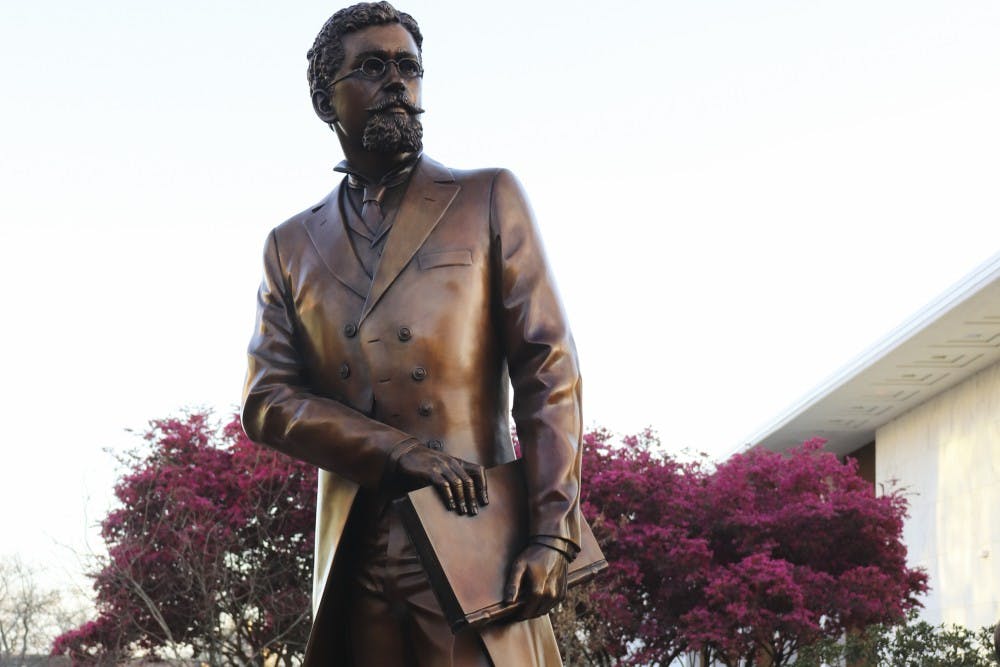"Invisible No More," the first book of its kind to detail the extensive Black history at the University of South Carolina, is set to be released in November.
The project is led by co-editors and USC alumni Tyler D. Parry and Robert Greene II, both of whom have been involved with the project since its beginning in 2013 when the university celebrated its 50th anniversary of being desegregated.
The volume will tell the story of the Black experience throughout the university’s history and will include essays written by 12 scholars, each in different periods of that history.
Parry and Greene were both graduate students in USC's Ph.D. program under the direction of Valinda Littlefield, the former director of African American studies.
“I actually handpicked a group of students, both graduate students and undergraduate students, to research certain topics and present a panel," Littlefield said. "Tyler and Robert were two of those students.”
Littlefield was the African American studies program coordinator at the time, according to Parry, and she worked closely with her students to inspire the project.
“The seed was planted. As I told them early on, I hoped that this would end up being a book or something that would be tangible,” Littlefield said.
With the release of the book scheduled for the fall, this hope is now coming to fruition. The book includes much of the work that was done in 2013. Over the past two years, Parry and Greene have carefully curated and edited the selection of essays that will be included in the book, making sure all of the scholars had a connection to the university.
As far as the editorial process, Parry and Greene decided to put the essays in chronological order, figuring this would make the history its most accessible, Parry said. Parry is the assistant professor of African American and African diaspora studies at the University of Nevada, Las Vegas.
The book follows history from slavery in the Antebellum era to the Reconstruction period after the Civil War to segregation, the civil rights movement and the modern era.
"This volume essentially takes readers from some of the earliest recorded instances of seeing people of African descent on the campus, up to current debates about how African Americans are represented on the campus grounds," Parry said.
Littlefield, who wrote a forward for the piece, emphasized the importance of a commemorative history to this extent.
“What I hope students get out of this is that the evolution of the University of South Carolina, like any institution, is complex," Littlefield said. "There are times when the university goes backward or just stands still for a while. But when you start thinking about the diverse history of the University of South Carolina, you get a much better understanding of the struggles, the triumphs, the shortcomings, the achievements – you get a more holistic view of an institution."
Greene said he hopes that the book will reach a large audience and will inspire opportunities for greater research and understanding on the topic.
“Both Tyler and I believe this is a story that deserves the attention of every person who has any affiliation with Gamecock nation,” Greene said. "We’re actually hoping to inspire others to, perhaps, do their own projects about different aspects of the history of African Americans at UofSC."
The book will be published by the University of South Carolina Press. It is currently available for pre-order in paperback, hardcover and e-book formats.

